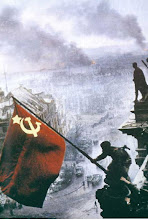 I was delighted to see that relatives of the late Marxist writer Edward Upward have put together a superb commemorative website, which provides a definitive source of data and information connected to Edward Upward.
I was delighted to see that relatives of the late Marxist writer Edward Upward have put together a superb commemorative website, which provides a definitive source of data and information connected to Edward Upward.
The writer fully acknowledges with gratitude material provided in the piece below derived from the Edward Upward website described. I wrote earlier at the time of Edward death about my connection with him and my great regard for his work HERE
Of particular interest to readers of 'Unrepentant Communist' will be the opportunity to download in its entirety 'the Spiral Ascent' dialectical triad of novels, set in the period of the 1930's, 1940's, and the 1950's and early 1960s. Charting the developments both artistically and politically surrounding the Communist teacher and writer Alan Sebbrill. Picture above the Battle of Cable street, antifascist activity is described in wonderful detail in the first section of the triad, 'In the Thirties'.
You can access the Spiral Ascent and download in its entirety electronically here
Edward Upward was a writer of novels and short stories from the 1920s until into the present century. His literary associates included Christopher Isherwood, W. H. Auden and Stephen Spender. Upward's early and late stories often involve a fantastical element, whilst his trilogy of novels The Spiral Ascent recalls the events and atmosphere of his overlapping literary, political and educational worlds. The question of how art should relate to real life and, more specifically, how a socialist can combine artistic creativity with political commitment, is central to his mature work.
Although The Spiral Ascent is not strictly autobiographical, most of the characters and incidents in it are very similar to real-life counterparts, with Alan and Elsie being based on Upward and his wife Hilda, and Richard on Isherwood. One of the obvious divergences from reality is that Alan is a poet in the book rather than a writer of prose.
In the Thirties recounts Alan Sebrill's attempts to write and find love, his personal crisis, and then his involvement in the Communist Party, his job as a teacher and his marriage to Elsie. The opening chapter by the seaside sees the young writers Alan and Richard glorying in language and nature but also deliberately making contact with 'the so-called lower classes'. This may seem strange until the reader realises that they have had the same isolated, privileged upbringing as the 'poshocrats' they despise. Later in the book we find Alan sometimes fighting to suppress some lingering snobbish attitudes, but he doesn't waver in his commitment to the side of the workers.

Later chapters give a vivid picture of the activities of CP members, including opposition to Oswald Mosley's blackshirts and routine leafleting. Upward is not afraid to put the opinions of the time into Alan's mouth without the benefit of hindsight, including those showing his ignorance of the extent of Stalin's crimes. He thus provides a truthful account of the events, atmosphere and his own feelings of the 1930s. This is one of the most notable achievements of the trilogy, and one which is partly a result of Upward retaining his revolutionary politics. Many writers about the period who were on the left in the thirties moved to the right during the Cold War and easily fell into cynicism or opposition to their earlier ideas, whereas Upward is still able to recognize the genuine motivations and positive results of the actions of ordinary CP members despite the effects of Stalinism on the Party. The final chapter closes shortly before the war begins, with comrades on a walk in the country, and includes what is effectively a prose ode to trees, reflecting Upward's own love of the natural world as well as his observational and descriptive powers.
Whereas In the Thirties has Alan and Elsie going along with the Party's condemnation of a dissident member, the subject of The Rotten Elements is their own disagreement with the Party's post-war policy in Britain, which they believe is a reformist betrayal of Leninism. This involves them in a theoretical confrontation with the Party leadership in which their reasoned arguments are arrogantly dismissed. The novel soon begins to take on some of the colouring of a political thriller. There is good cause for paranoia given both the hostility of the Party leadership and state surveillance, although Elsie has a more level-headed reaction to events than Alan, who has a tendency to emphasize the ominous.
Upward's intermittent discussion of religion in the trilogy features strongly in The Rotten Elements, where Alan and Elsie are shown having conversations with their children about Christianity and a Communist ex-minister plays a prominent part. Whilst Alan sometimes compares his attitudes to those of a religious person, he has long been an atheist and does not impute any religious aspect to Marxism itself.
In the final volume of the trilogy, No Home But the Struggle, Alan (like Upward as he was writing) has retired from teaching and is able to write full-time. The narration is now in the first person and the book is full of reminiscences of Alan's childhood and university days, told in a relaxed, Proustian manner. These are interspersed with accounts of Alan and Elsie's political activities in the post-war decades, particularly as members of the Campaign for Nuclear Disarmament. But the dominant thread, as throughout The Spiral Ascent, is Alan's ongoing struggle to write poetry which will be both artistically truthful and contribute to the fight for a better world.








